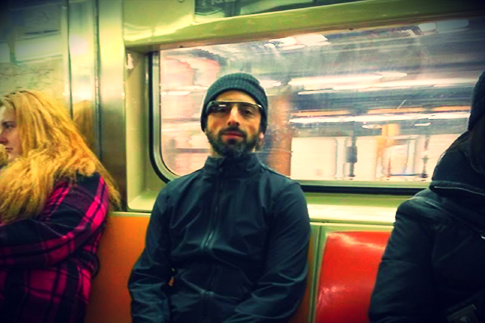In one passage of Vinod Khosla’s interview last week with Google guys Larry Page and Sergey Brin, the pair comment on the company’s future–your future!–when you’ll eventually have the implant. Search-engine earnings are a lot like oil money in Dubai: Eventually the generous profits dry up, so Page and Brin seek to build a diverse company unreliant on any one sector. If just intelligent machines or driverless-car software or a couple other “moonshots” pan out–robot butlers, anyone?–the Google nation-state won’t have to fret over its bottom line. What those things (robotics in particular) do to your bottom line, however, is another matter, since those complexities seem beyond the remedies of technologists or the will of politicians. An excerpt:
“Vinod Khosla:
I’d love both of you to comment a little bit on where Google is. What are the couple of things that become really, really critical for Google to do in the next five to 15 years? What areas are going to be critical?
Sergey Brin:
I think if there was a couple of areas that were critical, then that would be too vulnerable a spot to be in, in a way. There are many, many opportunities to broadly use technology to impact the world, and to have a successful business. We try to invest, at least, in the places where we see a good fit to our company. But that could be many, many bets, and only a few of them need to pay off. From my perspective – running Google X – that’s my job, is to invest in a number of opportunities, each one of which may be a big bet. But I hope– well, you have a portfolio too. But I hope, across that portfolio, some of them pay off. Some of them are connected to our existing business and some, not so much. If you look at the self-driving cars, for example, I hope that that could really transform transportation around the world, and reduce the need for individual car ownership, the need for parking, road congestion and so forth. If that was successful in its own right, we would be super happy. It’s obviously still a big bet. It’s got many technical and policy risks. But if you are willing to make a number of bets like that, you’ve got to hope that some of them will pay off.
Vinod Khosla:
Larry, any particular areas you think are critical to Google’s success the next few years? Areas you don’t want to screw up?
Larry Page:
I think we’re pretty excited about Android obviously. I think that we have our traditional businesses obviously, search and things like that. I think one of the things people have been confused about– people are like, ‘What is Google? Why are you guys coherent?’ And it’s really interesting when you look at search. It’s really trying to understand everything in the world and make sense of it, organize it for people. We said, ‘Well, We’re doing that. A lot of queries are actually about places, so we need to understand places.’ Then we said, ‘A lot of the queries are about content we can’t find. We did books, and so on.’ So, we’ve been gradually expanding that. If you look at things like Google Now also– well, maybe you don’t want to ask a question. Maybe you want to just have it answered for you before you ask it. That would be better. Originally, the ‘I’m feeling lucky’ button, that was supposed to be– you should be able to skip the search results, and go directly to the answer. Unfortunately, it didn’t work that well. It was kind of an obtuse naming of the feature, but that was the same kind of idea. We feel like right now, computers are still pretty bad. You’re just messing around. You’re scrolling on your touchscreen phone, and trying to find stuff. You’re in a car. It’s bouncy, and you can’t– it doesn’t really work. I think the actual amount of knowledge you get out of your computer versus the amount of time you spend with it is still pretty bad. So I think our job is to solve that, and most of the things we’re doing make sense in that context.
Vinod Khosla:
Along those lines, one of the areas I know you’ve both been very interested in is machine learning and AI, as it’s been called in the past. In the past, it’s never quite reached its potential or speculated potential. How far do you think it is as a technology, and how much of a role do you think it plays going forward?
Sergey Brin:
Look, this is our latest model, right here [gestures at Larry]. See, not perfect yet. But doing pretty well. In the machine learning realm, we have several kinds of efforts going on. There’s, for example, the brain project, which is really machine learning focused. It takes input, such as vision. In fact, we’ve been using it for the self-driving cars. It’s been helpful there. It’s been helpful for a number of Google services. And then, there’s more general intelligence, like the DeepMind acquisition that – in theory – we hope will one day be fully reasoning AI. Obviously, computer scientists have been promising that for decades and not at all delivered. So I think it would be foolish of us to make prognoses about that. But we do have lots of proof points that one can create intelligent things in the world because– all of us around. Therefore, you should presume that someday, we will be able to make machines that can reason, think and do things better than we can.”


